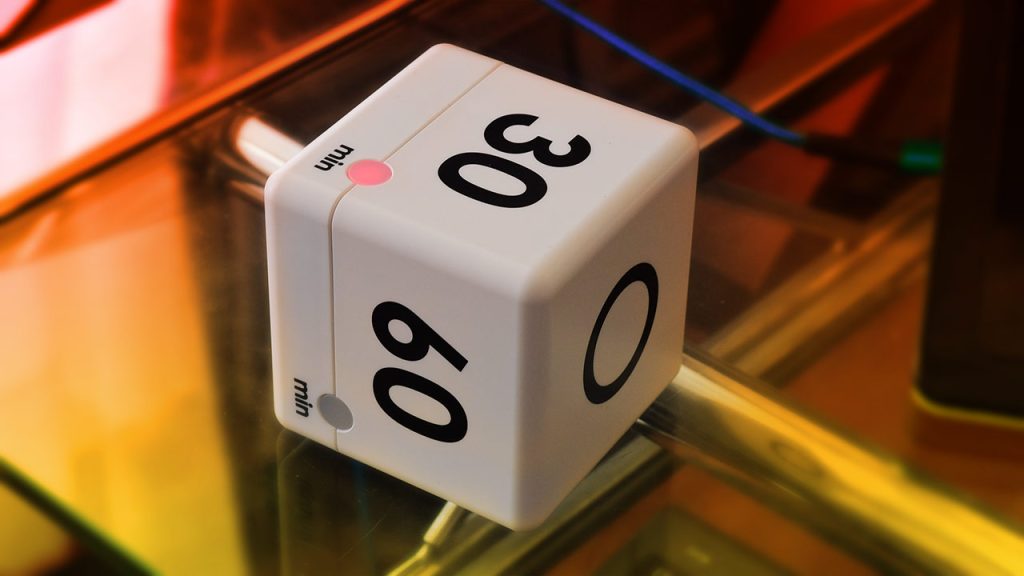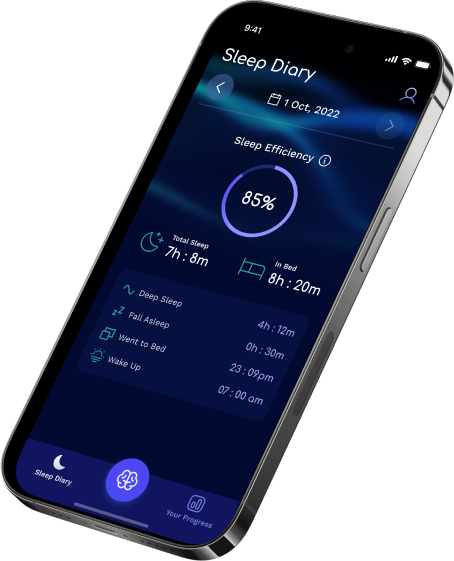
Work can affect people’s sleep in various ways.
Out of those affected, most are unwilling recipients of their circumstances. Maybe they had to get a second job that robs them of their sleep hours. Maybe they work in highly stressful jobs and suffer at night with insomnia and anxiety because of that.
However, a different group of people live to work and willingly cut their sleep hours to have more time to dedicate to the grindset. They are known as workaholics.
This article is for them. I will present two arguments:
- One defends the notion that cutting down sleep should be way down the list of priorities when trying to be more productive.
- The other acknowledges that sometimes reducing sleep hours is inevitable and offers some tips for those situations.
Let’s begin.
🔎 Feel free to jump to your preferred section in this article:
1. Why You Shouldn’t Cut Sleep Hours
» 1.1 But Successful People Don’t Sleep Much
2. What To Do If You Cut Sleep Hours
3. FAQ
1. Why You Shouldn’t Cut Sleep Hours
There are two reasons why you should not cut sleep hours:
There are two types of sleep deprivation and both will affect you.
Acute sleep deprivation occurs after missing out on sleep for a few nights. The risk of it having long-lasting effects on your physical health is low (unless it’s a recurring event, that is) but you won’t be able to escape its immediate consequences.
- Physically, you’ll likely have low-energy days and daytime sleepiness.
- Mentally, your cognitive and emotional self-regulating abilities will be reduced.
From a health point of view, you won’t likely feel very healthy while sleep-deprived. Nor will you feel particularly intelligent or socially apt. However, this might be a price you are willing to pay to meet that deadline.
However, when sleep deprivation becomes part of your lifestyle and you start wearing it as a badge of honor, you will enter a state of chronic sleep deprivation. That’s when things start to get fun because one day you wake up and discover that not only have you gained weight, but your doctor is also now telling you you are showing signs of diabetes and heart disease. Later in life, if you are really lucky, you might also develop Alzheimer’s and get an early death. These are some of the consequences that the scientific literature tells us come from leading a sleep-deprived lifestyle.
2. Sleep deprivation results in worse job performance, productivity, and work quality.
Acute sleep deprivation is enough to affect your work negatively.
For instance, as a result of reduced cognitive functions, you will be paying less attention, be unable to focus for long, will not be able to make decisions fast, and won’t easily remember or retain critical information.
Reduced emotional self-regulation means you will be irritable and demotivated more easily, and will be less capable of socializing with others properly.
Believe it or not, these characteristics are not exactly the ones that lead to high-quality work.
The consequences of chronic sleep deprivation will also affect your work negatively. Because if you don’t find the time to take care of your health, you WILL have to find the time to take care of your diseases.
This is another way of saying that, in work, having a long-term sustainable strategy is fundamental to getting more work done over one’s lifetime.
But Successful People Don’t Sleep Much
“Okay, but I have read about all those high achievers like Elon Musk, Jack Dorsey, or Marissa Mayer who became successful by only getting a few hours of sleep a night. I even read that Nikola Tesla slept as little as 2 hours per night to work on his ideas. I want to be a high achiever like them, why should I care about what you say?”
So, let’s talk about it.
There are a few aspects to consider when using those people as your sleep role models.
Short Sleep Syndrome.
About 1% of the population has a genetic mutation on the ADRB1 gene, a condition known as the Short Sleep Syndrome. This mutation allows them to sleep less than six hours per night without feeling tired or otherwise impaired. These people usually have always had short sleep patterns since they were kids.
Unsustainability
Even though there might be some overlap, it’s safe to say that most high achievers do not have the ADRB1 gene mutation, and are indeed operating on a sleep-deprived lifestyle.
As discussed before, this is not a wise long-term strategy. Elon Musk, now a bit older, says he is no longer able to maintain his previous sleep routine of 4-5 hours a night:
“I’ve tried to sleep less, but even though I’m awake more hours, I get less done. And the brain pain level is bad if I get less than six hours of sleep per night”
Elon Musk on CNCB Interview
So there you go, straight from the horse’s mouth. As Elon got older, his body told him that certain limits were no longer acceptable, so he increased them and determined that 6 hours of sleep per night was his new bare minimum.
However, remember this — if you wait to implement changes until your body forces you to, you are most likely leaving some lasting damage to your health.
Polyphasic Sleep
While people like Nikola Tesla or Thomas Edison slept a few hours a night, they were also known to frequently take power naps to compensate, effectively making them polyphasic sleepers.
Polyphasic sleep is, simply put, the practice of sleeping multiple times a day.
So if we take this into account, the actual total amount of sleep these people had was higher than what it’s commonly reported — still, granted, lower than that of the average human being.
Catchup-Sleep
Catchup-sleep refers to the extra sleep a person gets to balance a sleep deficit from previous nights.
Still focusing on Nikola Tesla, some sources mention this was how he actually slept:
- He would get so excited about his ideas and projects that he could not sleep much at night, even stating that “such emotions make a man forget food, sleep, friends, love, everything”x
- In this state, he would take his power naps to compensate for his sleep deprivation.
- However, after this excitement phase was over, some sourcesx state that he “would often crash for the entire day of sleep”.
Hopefully, this illustrates to you how reality often is different from the caricature images we’re led to believe.
Disinformation
Finally, you might have simply drunk the Kool-Aid. If your ideas about getting less sleep come from some grindset guru on social media, then you might consider that people lie or exaggerate the facts.
Mentioning Tesla one last time, he seems to have accused Thomas Edison of sleeping much more than he would want others to believex.
Most of what you see online is a well-crafted simulacrum designed to garner views, likes, and followers because that pays people’s bills. So question everything you see and hear — the reality is usually much more mundane than what others want you to believe.
📢 Enjoying this article so far? Don’t miss the next one — you can subscribe to the newsletter, follow us on your favorite social media, or even join us for a real-time chat on Discord
2. What To Do If You Cut Sleep Hours
I promised at the beginning of the article that I would provide the other side of the argument. So, let’s forget all that was mentioned previously and dive into the opposite view.
So, I get it — we all have busy and demanding lives, and sometimes we simply need more time to do what has to be done. Maybe you:
- Have a really important deadline next week and need to deliver that project on time no matter what!
- Want to stand out in your job to get that promotion, and that requires lots of extra hours.
- Need to get that side hustle to start showing results fast, and your day job is taking all your time away from you.
- Are a startup founder working on important technology that will improve the world, and there’s no time to wait!
In the ideal world, everyone could work on any of those things and still get lots of high-quality sleep, but the real world doesn’t work that way.
So, what should you do? Should you accept that things are that way, and if your health pays the price, then so be it?
Well, let’s just say that there are a couple of things to try before letting things get to that state of affairs 😉
2.1 Maximizing Time and Productivity
Before diving straight into sleep reduction, you might want to ensure you have properly mastered your productivity and time-management skills.
If you can achieve more in less time, you might not need to work so many hours, while still feeling it was a productive day.
These are some techniques for you to explore:
Pomodoro Technique:
- You work for 30 minutes (a Pomodoro), then take a 5-minute break.
- After completing four Pomodoros, you take a longer break of 15 minutes.
- Unintuitively, this usually results in more focus and productivity.
- Example: breaking down the task of creating a business plan into 30-minute intervals with 5-minute breaks in between to improve focus and accomplish the task more efficiently.
- Personally, I like using this technique. I even bought a physical Pomodoro timer, because it feels much more practical and immediate than a digital alternative.

Time Blocking:
- A productivity technique where you schedule specific time slots for certain tasks or activities.
- It prevents multitasking and interruptions, allowing you to focus on one job at a time.
- Example: setting aside a specific block of time each day, from 2 PM to 4 PM, solely for networking and investor meetings, ensuring these tasks are given undivided attention.
The Eisenhower Box:
- A time management strategy created by President Eisenhower.
- It categorizes tasks into four quadrants: Urgent and Important, Important but Not Urgent, Urgent but Not Important, and Not Urgent and Not Important.
- It helps prioritize tasks based on their urgency and importance.
- Example: prioritizing addressing customer complaints (urgent and important) over rewriting website content (important but not urgent).
Batch Processing:
- A workflow technique where similar tasks are grouped together and performed all at once.
- Reduces context switching and increases focus and productivity.
- Example: when receiving a multitude of emails daily, check and respond to them all at two predetermined times, such as 10 AM and 4 PM, rather than constantly throughout the day to maintain productivity.
The 80/20 Rule:
- Also known as the Pareto Principle, it states that 80% of results come from 20% of efforts.
- It suggests that 80% of productivity can likely come from 20% of tasks.
- Example: focusing on the top 20% of the product features that derive 80% of customer satisfaction, to focus resources on high-value aspects of the business.
Make use of your peak hours:
- Focus on identifying and utilizing the hours during the day where energy, focus, and creativity are at their highest.
- Schedule critical tasks that require more brainpower during these peak hours to maximize productivity.
- It can significantly boost performance as the individual works in sync with their natural body rhythm.
Delegation of Work:
- If you have the money, hire an assistant to do less critical (but still necessary) tasks, while you focus on the most important ones.
2.2 Gradual Reduction in Hours of Sleep
After you have mastered the art of productivity and time maximization, and still find yourself wanting to reduce the amount of hours you sleep, you might as well do it in a way that facilitates the process, by giving your body the chance to adapt to your new physiological state and demands.
One of the strategies for doing this is to reduce the amount of sleep you get each night gradually.
Some steps you can take to implement this strategy are:
- Start by determining your baseline sleep duration (i.e. how much you usually sleep on average). You can use the LucidLink sleep tracker app for a week or two.
- Decide how much sleep you want to reduce. For example, if you currently sleep seven hours per night and want to sleep six hours, your target is a one-hour reduction.
- A safer and more realistic reduction rate would be 15 minutes per night. For example, if you want to reduce your sleep by one hour, it will take you four nights at this rate.
You can keep tracking your sleep quality and mood every day with LucidLink to monitor long-term trends. If you notice a permanent decline in sleep quality or mood after implementing sleep reduction, this is a clear sign that you need to increase the hours.
This strategy should be implemented while being regularly supervised by your doctor.
2.3 Focusing on Sleep Quality and Efficiency
Just like you can maximize your productivity and time, the same idea can be applied to sleep.
Most people are not very efficient in their sleep, which most likely includes you.
Not being sleep efficient means spending more time awake in bed than needed. This means taking too much time to fall asleep once you lay down on the pillow, and it also means waking up in the middle of the night multiple times.
Then you also have sleep quality — low sleep quality means you don’t wake up feeling well-rested and refreshed. This is usually due to not spending enough time in Deep and REM sleep.
If you can improve those sleep metrics, then you might be able to achieve a restful and restorative sleep within your time limitations.
Here are some strategies to improve your sleep quality:
- Have proper sleep hygiene, following the tips discussed in this article, e.g.
- Continue using LucidLink. We designed this app with features that track how your lifestyle impacts your sleep efficiency and quality. Try exploring and implementing new habits, let’s say related to exercise or diet, and take note of that on the app. Over time, correlations will start showing up — then, whatever improves your sleep quality and efficiency, keep doing more of that; whatever doesn’t, stop doing it. I often operate fine under 7 hours of sleep — as long as I’m very rigorous in doing the things that improve my sleep quality at night — so I know from experience the power of the personalized, data-driven insights provided by the app.
FAQ – Answering Some Questions
Q: I am a workaholic and suffer from sleep problems. I want to change that. Where can I begin ❓
If you are at a point where you are losing hours of sleep to focus on work, and that it is becoming something outside of your control… then you might need to consider a solution like Cognitive Behavioral Therapy.
A CBT specialist will work closely with you. They will help form new thinking habits and behaviors. This will allow you to lead a more balanced life that you feel is under your control.
One way to find a Cognitive Behavioral Therapist is searching for one using Sleep Atlas, our free online database of sleep solutions.
Final Thoughts
Balancing work with sleep is a challenge many face. And since different people value different things, some will value sleep more, others will value work more.
You are free to choose how to live your life — I simply want you to have the knowledge to make informed decisions regarding your physical and mental health.
Additionally, even though the consequences of sleep deprivation are scary, I do not want you to stress out — distress (worry and anxiety) is known to make bad things worse, while eustress (positive stress) acts as a shield. So, if you are currently sleep-deprived due to your work, focus on the excitement and other positive aspects of it to maintain that state of eustress.
And whatever your decision is, there’s no reason not to keep track and improve your sleep quality. That’s why you should download our LucidLink app and start tinkering with it today.
I hope you enjoy it. Take care and sleep well 💤
MN
🌙 If you enjoy sleep-related content, join our community! Subscribe to our newsletter, follow us on your favorite social media, and join us for a real-time chat on Discord ☀

